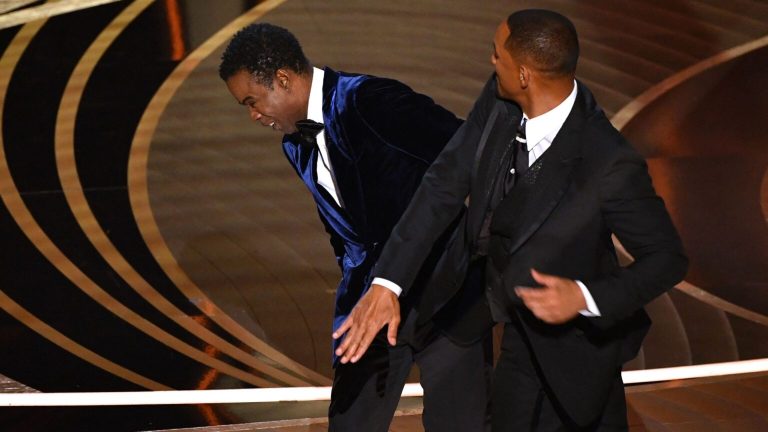In her column, Gülseren Onanç, the Founding Chair of the SES Equality and Solidarity Association, reflects on the Academy Awards and the movie Bergen which tells the story of a singer murdered by her ex-husband.

Gülseren Onaç
Male violence became the main headline again. This time it occurred in an unexpected place. At the Academy Awards, which the world is eagerly waiting for every year, actor Will Smith slapped the host Chris Rock, who made a joke about his actress wife Jada Pinkett Smith’s hair. Will Smith, who stated that love blinded his eyes, may have expected an enthusiastic applause from the hall in response to his statement, “Don’t mention my wife’s name.” After all, we are going through a period in which a masculine war language dominates the world. Smith, who could not get the attention he expected in his show of violence, tried to explain in his speech that he did justice to the role of “the passionate man who protects his family.” He won the best actor award but was discredited by his toxic masculine language.
However, the producers of the movie “King Richard”, for which Will Smith won an award, wanted to tell how the famous black tennis players Venus and Serena Williams’s father, Richard Williams, struggled to raise their daughters as self-confident equal individuals.
Richard’s struggle against poverty, discrimination and exclusion from the tennis elite is the story of a non-violent life that supports women’s struggle for equality. Although Will Smith tried to write a heroic story by saying that his character did everything to protect his family, no one bought it.
“Protecting does not mean slapping someone on their behalf,” Joseph Harker wrote in the Guardian. This attempt to give violence a false moral meaning is at the heart of many crimes. Morgues are full of victims of this kind of “protection,” he wrote.
Will Smith’s attempts to cover up violence were not successful, but they overshadowed the success of the women at the Oscars.
The toxic masculinity of the Wild West
This year’s Best Director award went to Jane Campion, the director of The Power of the Dog, which deals with toxic masculinity in the wild west.
Campion became the third female director to receive an award in the 94-year Oscar history.
As Benjamin Lee from the Guardian stated, Campion was celebrated by many for her refusal to “compromise or condescend” and for presenting a “vast spectrum.”
Bergen and toxic masculinity
This year’s awards were given to films that criticise the system. Movies like these help us understand how valuable storytelling is for rights defenders. The film about the artist Bergen, who was murdered by her husband, whom she divorced at the age of 29, was also precious in terms of telling the toxic masculinity underlying violence against women.
Sema Kaygusuz and Yıldız Bayazıt, the two women who wrote the script of the movie Bergen, tell the struggle of the artist against masculine mentality. Yıldız Bayazıt reflects on the film stating, “Beyond being a biography, the movie is a story that is still up-to-date … “Fatalistic” violence against women, which has permeated this land, is understood as being unavoidable. This is a geography that does not want to be healed and is deliberately neglected.” It is necessary to congratulate the screenwriters, who said, “We have seen once again that women need to think, tell stories, especially women’s stories.”
The story we know the end of
I watched the movie Bergen, which has been watched by five million people since its release, in the small cinema in our neighbourhood. The audience of the hall consisted of men and women of very different ages and social groups. Although we know the story and the ending of the movie, those who saw the film knew that there was a need to raise our voices. I have observed that the men in the movie theatre also come out of toxic masculinity. Although men are seen as the kings of patriarchy, they will start to change the system together with women when they realise that they are victims of this system.
Artists criticising the system
Bergen would have been 63 years old if she had lived. It shouldn’t be hard to predict what kind of career she would have. One of the most talented artists of her time, Bergen would probably become one of the queens of arabesque-pop music. She would perhaps be the spokesperson for women who were subjected to violence. Bergen was a brave heart that defied the system. She responded to the fans with the song “don’t be sad for me” despite all her grievances.
When brave artists critique the system, it gives us strength and confidence in society. The wave of hope created by Tarkan’s song Geççek is a good example. Actress Beren Saat, selected as the climate ambassador, also came to the fore with her speech at the award ceremony. Her criticism of the system, with her statement, “Women’s clothes are being used as a political material, our education system is in decline, the women’s ministry is being closed, women are losing their rights systematically”, demonstrated how celebrities can question the system and strive to change it.

